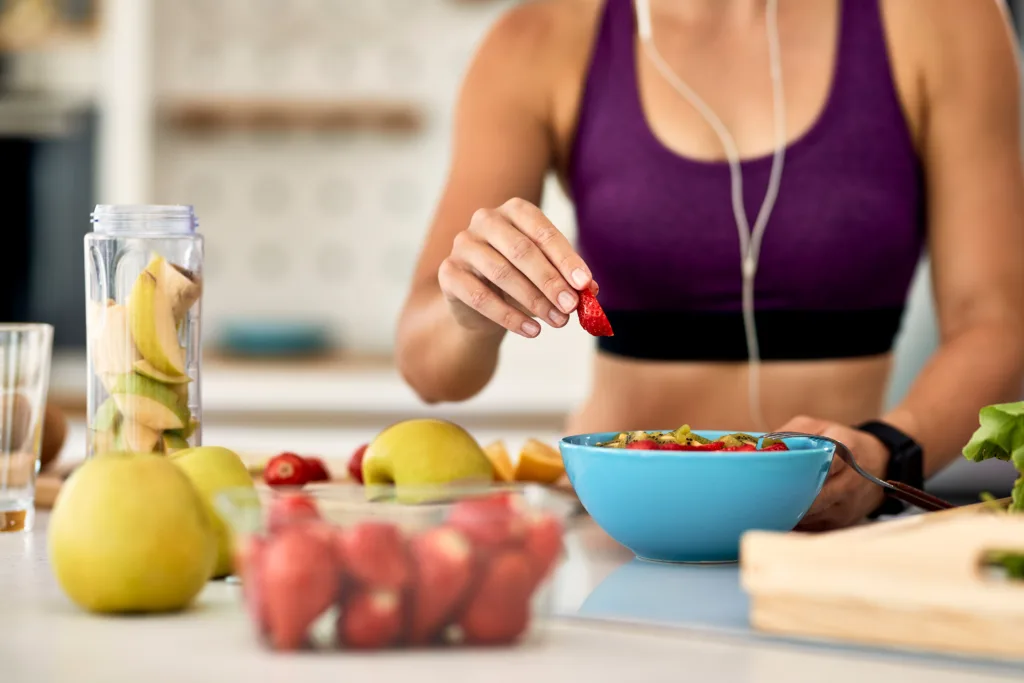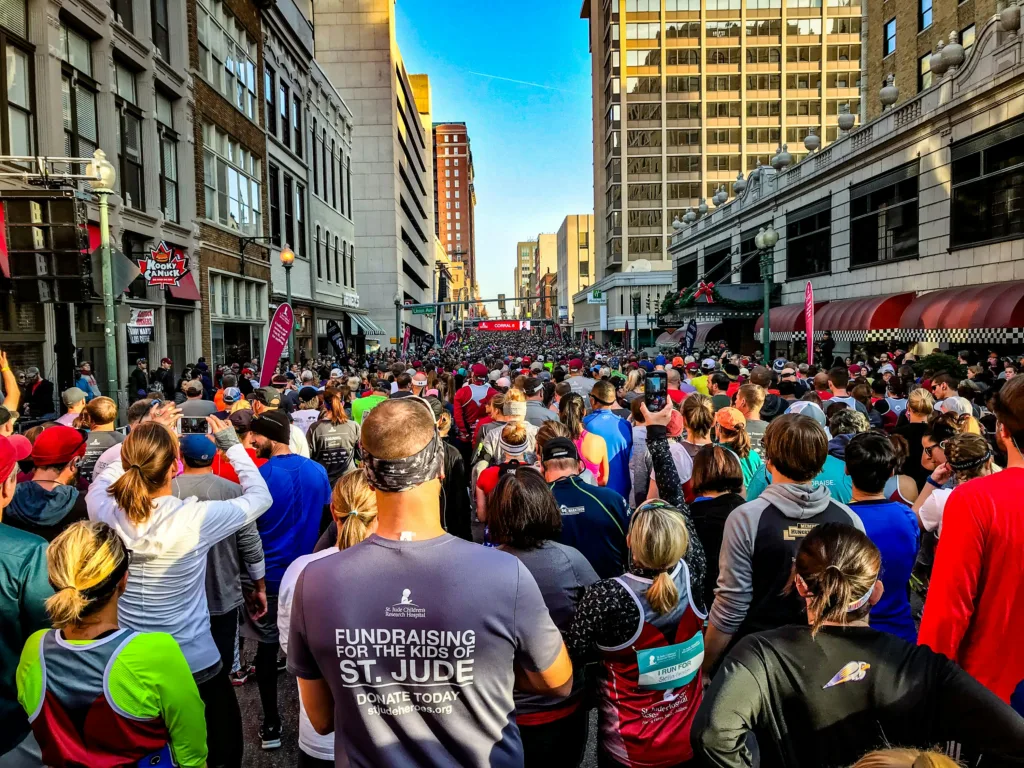How to Eat Like a Sports Professional?

Image by Freepik
A Comprehensive Guide to Optimizing Your Nutrition
Aspiring to perform at your best on the field or court? It’s not just about rigorous training; your diet plays a pivotal role too. If you’ve ever wondered how sports professionals maintain their energy levels and achieve peak performance, you’re in the right place. In this guide, we’ll delve into the details of eating like a sports professional, covering everything from frequent meals to hydration strategies. By the end of this article, you’ll be equipped with the knowledge and insights to optimize your nutrition and elevate your athletic prowess.
How to Eat Like a Sports Professional?
- Frequent Meals: Sustaining Energy Levels and Preventing Overeating

In the fast-paced world of sports, energy is everything. Fueling your body with high-performance foods every 2-4 hours ensures a steady supply of nutrients to sustain your energy levels and ward off overeating. Incorporate complex carbohydrates, lean proteins, and healthy fats into your meals to keep your energy levels stable throughout the day. By spacing out your meals, you’ll also avoid the pitfalls of sudden energy crashes and excessive hunger.
- Pre-Practice/Competition: The Ideal Meal Timing and Composition

Your pre-practice or pre-competition meal is the foundation of your performance. Aim for a high-carbohydrate, low-fat, moderate-protein meal 3-4 hours before your session. Additionally, have a light snack 1 hour prior to your activity, focusing on easily digestible options to prevent any stomach discomfort during exertion.
- Post-Practice/Competition: The Key to Optimal Recovery
After an intense practice or competition, your body needs rapid replenishment. Consume a meal rich in complex carbohydrates and lean protein within 15-60 minutes post-exercise. If timing doesn’t permit a full meal, opt for a high-quality recovery snack to kickstart the recovery process. Strive for a carbohydrate intake of 0.5g per pound of body weight and 0.1g of protein per pound of body weight.
- Breakfast: Igniting Your Day with a High-Performance Start

Breakfast sets the tone for your day. A high-performance breakfast should include a balanced combination of carbohydrates, protein, and healthy fats. This combination provides sustained energy and helps prevent mid-morning energy slumps. Opt for whole-grain cereals, lean protein sources, and a variety of fruits to kickstart your metabolism and keep you fueled for the challenges ahead.
- Last Meal Before Bed: Promoting Digestion and Quality Sleep
Your nighttime meal plays a significant role in your recovery and sleep quality. Finish eating 3-4 hours before bedtime to aid digestion and prevent discomfort while sleeping. If you need a bedtime snack, opt for light, high-quality options that won’t burden your digestive system, such as Greek yogurt or a small serving of cottage cheese.
- Game/Competition Days: Maximizing Performance with Strategic Nutrition
Game days demand special attention to nutrition. Follow pre- and post-event guidelines closely, focusing on high-performance foods that provide sustained energy and aid in recovery. Your pre-event meal should align with the pre-practice guidelines, and post-event nutrition should mirror the post-practice strategy for optimal recovery.
- Balanced Diet: Covering All Nutritional Bases
A sports professional’s diet is not about cutting out entire food groups; it’s about balance. Consume a variety of foods from all food groups, including carbohydrates, proteins, fats, fruits, vegetables, and dairy if your body tolerates it. This approach ensures a well-rounded intake of essential nutrients that support overall health and performance.
- Hydration: The Backbone of Athletic Success
Staying hydrated is non-negotiable for athletes. Water is your primary hydration source throughout the day. However, during intense workouts or sweaty sessions, consider using sports drinks to replenish lost electrolytes. After exercise, aim to drink 16-24oz of fluid per pound lost during the activity to restore optimal hydration levels.
- Planning: The Key to Consistent Nutrition Habits
Planning is the secret behind successful nutrition. Plan your meals and snacks ahead of time to avoid falling into the trap of unhealthy options. Keep a variety of high-quality foods at your fingertips and make regular trips to the grocery store to ensure you always have the right ingredients on hand.
- Listen to Your Body: Honoring Hunger and Fullness Cues
Your body is your best guide when it comes to eating. Learn to recognize hunger and fullness cues. Adopt the “4-6” rule – eat when you’re slightly hungry and stop before feeling full. This mindful approach to eating prevents overindulgence and supports your body’s natural rhythm.
You might also want to read about different diet plans for weight reduction
The Right Foods for Every Phase of Training
Off-season nutrition for sports professional
During the off-season, focus on recovery and rebuilding. Increase your protein intake to support muscle repair and growth. Incorporate a variety of colorful fruits and vegetables to provide essential vitamins and minerals.
Pre-season preparation for sports professional
As you gear up for the upcoming season, emphasize complex carbohydrates to fuel high-intensity training sessions. Include iron-rich foods like lean red meat or leafy greens to maintain optimal oxygen transport.
In-Season Performance
Maintain a balanced diet during the season to ensure consistent energy levels. Hydration becomes even more critical during this phase, so monitor your fluid intake closely.
Post-season recovery for sports professional
After the season concludes, shift your focus to recovery. Prioritize anti-inflammatory foods like fatty fish and turmeric to reduce muscle soreness and inflammation.
Frequently Asked Questions (FAQs)
Is it necessary to eat frequently as a sports professional?
Yes, frequent meals help maintain energy levels and prevent overeating, crucial for sustaining optimal performance.
Can I skip breakfast before a competition?
Breakfast is essential, especially on competition days. It kickstarts your metabolism and provides energy for the challenges ahead.
How important is post-practice nutrition?
Post-practice nutrition is critical for recovery. Consuming complex carbs and lean protein within an hour helps your muscles recover faster.
What should my hydration strategy be during intense workouts?
Stay hydrated primarily with water, but use sports drinks during sweaty exercises to replace lost electrolytes.
Can I have a heavy meal before bed?
It’s best to finish eating 3-4 hours before bedtime to aid digestion and promote restful sleep. Opt for light, high-quality snacks closer to bedtime if needed.
How can I improve my meal-planning habits?
Plan your meals and snacks in advance, keep quality foods at hand, and maintain regular grocery shopping to avoid unhealthy options.
Conclusion
Eating like a sports professional is more than just a dietary regimen; it’s a lifestyle that optimizes your athletic potential. By incorporating frequent meals, timing your pre- and post-activity nutrition strategically, and focusing on a balanced diet, you’ll pave the way for peak performance. Remember, listening to your body’s cues and staying hydrated are equally crucial. So, gear up to conquer the field with a nutrition plan tailored to fuel your success.








